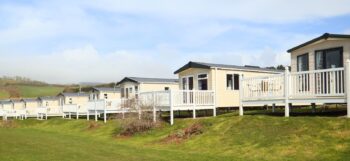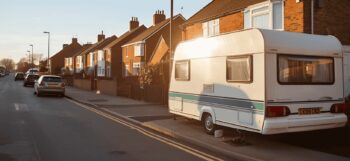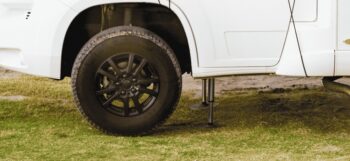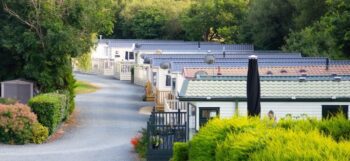If you are considering moving into a residential park home, you may be wondering if it will be a worthwhile investment. There are both good and bad factors that go along with park home ownership. It is up to you to decide whether or not the pros outweigh the cons and if you would be happy living in one of these residential environments.
Location is everything
The first thing that you should do is choose the park location that you would like to live in and then conduct plenty of research about the area the residential park is located in. You should take the time to visit the park during different times of day, and a night time visit is also recommended if possible. If you can talk to some of the current residents who live at the park home location, you will be able to gather a lot of additional information that will help you to make your final decision based on the opinions of those who have already lived in the area for some time.
Some of the questions that you may want to ask the residents may include, are they happy with their living situation? How long does it generally take to get repair work completed? Are there any problems with the homes or the area that they can share with you before you commit to moving there? It is a well known fact that residents in a park home are the best resources for park owners when it comes to selling property that they own (or worst resources for the owner, depending on what the residents have to say!) So get the most use out of these helpful individuals as you can before you make the decision to buy.
Can you live on the park?
Another thing that you can do while researching about park home ownership, would be to check out a couple of web sites in order to find out if the park owner is a member of any Industry Trade Associations. This will show you whether or not the owner is bound by the terms that are set forth by the Park Homes Charter. Two websites that you can use to gather your information include the National Park Homes Council (www.theparkhome.net), and the British Holiday and Home Parks Association (www.bhhpa.org.uk).
These two websites contain plenty of information that will be very useful in helping you to find the best residential park homes location. There you will be able to check to see if the park’s site licence will allow residents to stay at their location for the entire twelve months out of the year. There are some park locations that do not have a licence for residents to live on site all year long and will only allow residents to stay for a holiday or other short period of time. These park homes are also referred to as mobile homes and are generally only used for holidays or as second homes. Your park’s site licence will clearly state if the park homes location you have in mind is for annual purposes or for holiday stays only. You should also find a copy of your park’s site licence inside of the main park office building or on the notice board that will be located inside of the park. You need to be aware that park homes cannot normally be rented out under the terms and conditions laid down by the residential park, this is usually restricted to mobile homes on holiday parks, and therefore you cannot make any additional income from it.
We continue to work closely with the National Association of Park Home Residents (www.naphr.co.uk) and would highly recommend becoming a member speaking to their incredibly experienced advisers before purchasing. You'll be interested to know, too, that we offer NAPHR members free standard excess. All you need to do is advise our team at the time of purchasing.
Is it complicated?
Buying your park home can be a very easy and simple process. By law, you don't have to have the assistance of a solicitor in order to complete the process, however our friends at NAPHR highly recommend that you do. As you will not own the land that your park home is situated on you will not be liable for stamp duty.
When you have chosen the residential park that you want to live on and are ready to move forward with the process, there are two options that you will need to consider before you can move into your new park home. You can either decide to purchase a home that has already been set up on the park’s property, or you can order a custom made home directly from the manufacturer that is built to your own specifications. If you choose to go with this option you will need to speak with your park owner beforehand as well as the manufacturer to make sure that everyone agrees on the plan that you have in mind. Some park owners may require that you have a specific size home if you buy one from a manufacturer, or they may not allow customized homes on their property so it is best to make sure everything you have in mind is allowed.
When you go to buy a park home, you are making a purchase on the home itself, and entering an agreement for the use of the land with the site owner. Your resale value depends on the condition that the home is in when you put it up for sale. In a park home, you do not own the actual land, so therefore you will only be selling the home itself. However, the location of the park can help to drive interest and add value.
Park homes are manufactured to last around sixty years. That is why they are so affordable and cost much less than a standard brick home.
Park home ownership has really become a popular way to live in the UK. Today there are approximately 250,000 people who live in park homes. This gain in popularity has also helped to raise the prices on park homes.
What about the finances?
When you compare the costs that go into buying a bricks and mortar home, deciding to invest in a park home allows you to have a safe and secure living environment in a peaceful area for much less money. The quality of life and the extra money you will have to spend on other things that you need or holidays you can take should be taken into account when you are calculating the benefits of investing in one of these homes.
One downside that many people bring up when considering to buy a park home is the fact that you can not raise a traditional style mortgage with a bank or building society on one of these homes by using a traditional lender. However, there are loans available for people who own park homes and they are very similar to the mortgages on traditional properties. Interest rates can sometimes be higher with park home loans; however it is to be expected since park homes do not gain value over time.
Usually the maximum loan for a park home will be around 80% of the home’s current value. The loan can last up to a maximum of 25 years. Your interest rate is usually determined by the current situation of the economy however it also depends on the length of the loan, how much money you will be borrowing, and your own personal circumstances that may possibly inhibit your ability to repay. As with any type of mortgage, there are always certain conditions, such as the state of the borrower’s credit, which will need to be factored in before the loan can be approved.
Can I purchase and place a park home on my own property or do I have to buy on a residential park?
If your circumstances allow it, it may be possible for you to choose a park home and place it on your own land. However this will have to be approved by the local authority before you can do so and it is likely that planning permission will be required.
If you choose to buy a home that is located on a licenced park site, then the park home owner will need to make sure that the total operation of the park itself is in the condition that is stated within the details that are written up in the licence. If you end up placing your new park home on a plot or site inside of a park that is not licenced or it doesn’t have the consent of the local authority for residents to live there year round, you may be forced to leave the premises immediately or have your park home relocated to a fully licenced park.
How is the buying process for a park home different from the process for a traditional home?
We highly recommend reading through the government's information around park home living www.gov.uk/government/collections/park-homes#mobile-homes-act-2013.
The local council may also be a good source of information as they will be able to tell you if the residential park that you are interested in living in is licenced for residential use. They will also know about any future expansions for the park that may have an influence on your decision to live there.
After you have chosen the park and home that you want to move into, it will then be time to sign all of the paperwork, including the written agreement. This is a legal contract that both you and the park operator sign and are required to go by. The owner of your park is legally obligated to give you a copy of the written agreement so that you will have access to all the rules and regulations at all times. You should read through the entire document before you make any type of commitment, and certainly take advice before you sign if you need clarification or feel unsure.
For more information on Lifesure’s park home insurance, call for a free quote on 01480 402 460.
Useful links
www.gov.uk/government/collections/park-homes#mobile-homes-act-2013











